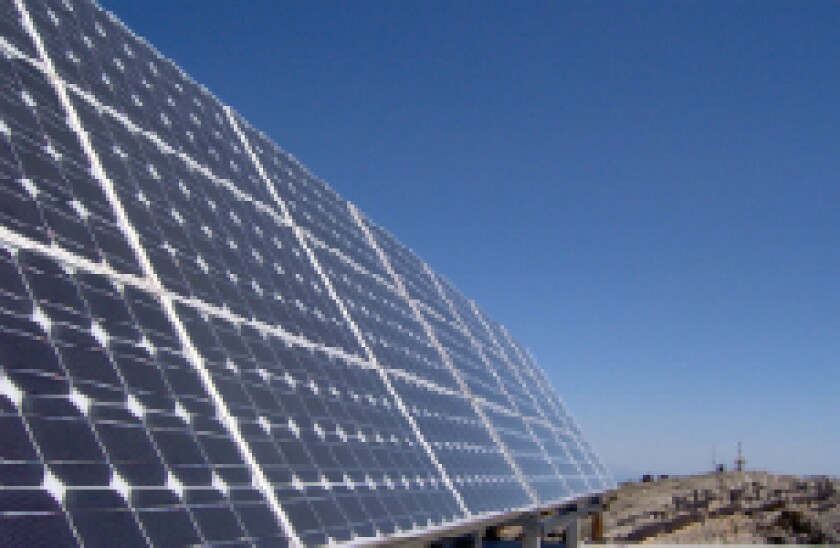The article, penned by Brian Potts, a utility lawyer at Foley & Lardner, claimed that rooftop solar "shouldn’t be saving [people] money… and almost certainly isn’t green".
His argument rests on two premises. First, that rooftop solar is only cost effective because of hefty government subsidies, and second, that it forces traditional utility companies to overcharge regular, non-rooftop solar electricity customers.
Let’s deal with the subsidies first. It is true that solar power receives hefty government subsidies in the US and elsewhere and that many such subsidies are indirect (or “hidden”, as Potts would say).
But the same is true for the fossil fuel energy industry and nuclear power. US subsidies for coal, refined coal, natural gas and petroleum liquids and nuclear amounted to $5bn in 2013, according to the US Energy Information Administration — barely less than solar’s share of $5.3bn.
And if you take into account indirect (“hidden”) government subsidies for fossil fuels, including money spent counteracting the harm caused to people by air pollution and extreme weather events influenced by climate change, the numbers ramp up.
Just this month, the IMF published a working paper that estimated global fossil fuel energy subsidies for 2015 at $5.3tr. China provides some $2.3tr of that, and guess who’s next? The US, at $700bn.
There's also the small issue of corporate structures that favour non-renewable energy over renewables, such as master limited partnerships, which attract investors to non-renewable energy projects but cannot be extended to renewable energy.
Tied up in nets
Potts’s second argument against rooftop solar is slightly more convincing, but just as myopic. Because of net metering, utilities are obliged to purchase excess solar power from customers with rooftop solar systems, generally at the same rate at which those customers draw power from the grid when their panels aren't working — such as at night, Potts says. That is true.
Potts adds that, were utilities to be freed from this obligation, they could buy power more cheaply from utility scale solar plants. That cost difference leads to his argument about wealth transfer. Customers with rooftop solar pay lower variable-use charges than non-solar customers and therefore avoid contributing revenue to cover the utility’s fixed costs, which pay for things such as power plants and transmission lines. So utilities must recoup that cost by charging ordinary customers more.
This is emerging as a broadly accepted truth in the solar industry. Net metering is far from perfect, and in some US states, such as California, utilities can end up purchasing more power from net metered systems than they actually need.
The issue is being addressed in several states. But that net metering is becoming a problem is in itself no compelling reason to discourage people from installing rooftop solar — a move with long term benefits for consumers and the planet.
It is, however, a compelling reason for utility companies to adapt their business models, not to fight against rooftop solar, but to fight with it.
Rooftop solar is not a "losing technology", as Potts calls it. With the help of subsidies (let's not sweep that one under the carpet), it has disrupted the traditional utility company model. Potts's straw man of hidden subsidies for solar does indeed favour distributed generation over traditional utilities, but surely that’s the point?
Rather than complaining that they’re having to charge people more for ecologically unsound fossil fuel power, utilities need to work out how to be more competitive and collaborative, in an environment where renewable energy and distributed generation are not only ecologically and economically crucial but also increasingly popular with consumers.
Distributed generation
It is telling that Potts’s article mentions none of the benefits of distributed generation, and that all the inefficiencies he cites are essentially the result of an energy market dominated by large scale utility companies with powerful lobbyists.
Potts dismisses the energy autonomy of rooftop solar and its consumer cost savings as almost selfish. He calls "micro-installation" of solar inefficient, but fails to mention the loss of electricity during long distance transmission from utility scale power plants and the corollary benefit of generating and consuming power in one place.
Neither does he acknowledge the benefit of distributed generation when utility scale plants are put out of action, such as during natural disasters.
Nor does the negative ecological impact (or indeed ugliness) of large scale utility plants bother him — although in another article, in The Weekly Standard, he lambasts “hippie neighbours” installing “ugly solar panels”.
Renewable energy subsidies have done their job pretty well, bringing down the fixed costs of solar photovoltaic technology and pulling it towards grid parity. It’s now the job of the finance community to help bring down the soft costs of solar for pioneering developers. SolarCity, for example, has made rooftop solar accessible for thousands more Americans than it was even a year ago — partly through its use of efficient funding methods such as securitization.
Traditional utilities — and their lawyers, such as Brian Potts — surely have better things to do with their time than wail about how disruptive (and most importantly, clean) technologies are putting them on the back foot. They should be preparing for a new force in energy generation and distribution, especially now that solar battery storage technology is within touching distance of the mass market.

